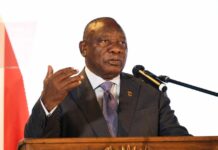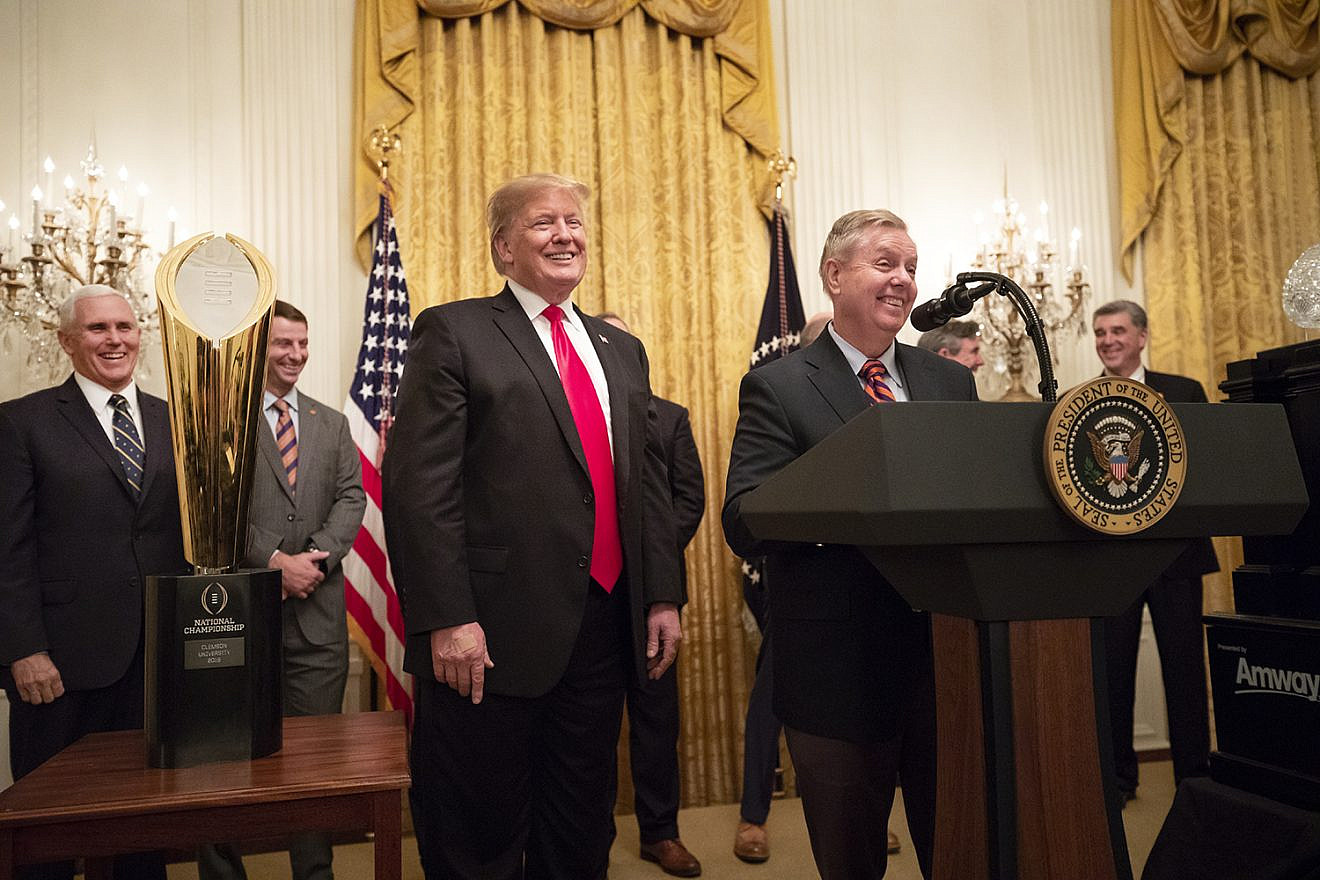Sen. Lindsey Graham (R-S.C.) recently urged former President Donald Trump to back the efforts of the Biden administration to negotiate an Israel-Saudi normalization agreement, saying it would transcend partisan politics.
“I told President Trump this is the natural extension of the Abraham Accords, and if we can do it, let’s do it. It doesn’t matter how it gets done, on whose watch it gets done. It’d be a good thing for the stability of the Middle East and our own national security, and President Trump deserves his fair share of the credit,” Graham said.
The senator said he told the former president that the Biden administration continuing his Middle East agenda was “the height of flattery.”
One of Riyadh’s central demands in exchange for normalization is a U.S.-Saudi mutual defense pact that would require approval by two-thirds of the Senate to pass into law.
“The Saudis want something stable and dependable, they want a deal with the U.S., not with one administration, so a defense pact and bipartisan support are crucial,” Professor Eytan Gilboa, director of the Center for International Communication at Bar-Ilan University in Ramat Gan and a senior analyst at the Jerusalem Institute for Strategy and Security (JISS), told JNS.
However, two-thirds support in the Senate is far from a certainty.
“They need Trump to deliver broad Republican support. Many are unlikely to follow because there is a lot of partisan politics going on and they won’t want to give Biden a major foreign policy win,” Gilboa said.
So vocal opposition from Trump would likely kill the agreement in the cradle.
“If Donald Trump says that he could ‘get a better deal’ and pushes strongly against this, it could be very negative for normalization,” Gilboa said.
Other experts are more optimistic about Republican support for a Biden Israel-Saudi agreement.
“I think that they are likely to get very broad Republican support for this issue if it is good for the U.S. and good for Israel,” Richard Goldberg, a senior adviser at the Foundation for Defense of Democracies, told JNS. “From the pro-Israel side, from the anti-Iranian side, and from the side of moving Saudi Arabia and the Middle East away from China’s orbit, this fills a lot of checkboxes for Republicans.
“Having Trump support might be useful, however, as a guarantee that he won’t be upset that they did the deal with Biden if administrations switch [after the election] in 2024,” Goldberg added.
The larger obstacle
Currently, the larger obstacle in gaining two-thirds support in the Senate is Democratic resistance, due to the antipathy in the party toward Saudi Arabia and in some cases toward Israel.
“The president is more likely to get opposition from his left wing,” Goldberg said.
Democrats have been widely critical of any deal with Saudi Arabia, due to the kingdom’s poor human rights record. In fact, Biden ran received a cold reception during his most recent trip to Saudi Arabia after he earlier criticized Crown Prince Mohammed bin Salman (MBS) for the murder by Saudi agents of dissident Jamal Khashoggi at the country’s consulate in Istanbul.
“We still have business with Saudi Arabia and that’s the murder of Jamal Khashoggi. I’m very reluctant to expand the relationship until that issue is adjudicated and justice is brought to Mr. Khashoggi and his family,” Rep. Gerry Connolly (D-Va.) was recently quoted as saying.
The Saudi demand for help with a civilian nuclear program is another major sticking point for Democrats.
MBS has set out Riyadh’s interest in establishing a comprehensive nuclear program, including enrichment of fissionable material, as part of the framework of a normalization deal.
Rep. Brad Sherman (D-Calif.) recently said in an interview with Jewish Insider that “the issue has got to be what is in the long-term interest of Israel and the United States. The Abraham Accords exist until they are discarded, whereas weapons are forever, and nuclear weapons are forever.”
Jerusalem has also raised concerns about this demand. A recent statement from the Prime Minister’s Office said that “Israel never agreed to a nuclear program for any of its neighboring countries. That was and remains Israel’s policy.”
However, according to experts, there is room for negotiations.
“The nuclear question does not need to be a problem. I think Biden can deliver many concessions including mining uranium, milling uranium, exporting uranium, and setting up fuel banks in Saudi Arabia as long as MBS is willing to move on the enrichment question,” Goldberg said.
The Palestinian question
Another possible obstacle is the Palestinian question. Reports seem to indicate that an Israel-Saudi normalization accord would include Israeli concessions to Palestinians. Currently, no concrete requests have been made of Jerusalem.
However, according to Goldberg, concessions might include restoring the American consulate to the Palestinians in Jerusalem, restoring various aid programs in violation of the U.S. Taylor Force Act, symbolic concessions on Jerusalem, and possibly even land withdrawals by Israel. Considering the current makeup of Israel’s government, such demands would kill the deal on arrival.
Gilboa said, “As the leaders of the Sunni world, the Saudis will feel great pressure to not normalize without concessions to the Palestinians. The Saudi king is personally very invested in the Palestinian cause and will likely drive this point strongly.”
Goldberg, however, believes these demands are being driven by Washington.
“I don’t think that the Saudis care about this. More likely it is a poison pill so that if talks fall apart over nuclear enrichment they can blame Israel for not making enough concessions,” he said.
According to Graham, Jared Kushner, former presidential adviser and one of the chief architects of the Abraham Accords, has been involved in the efforts to resolve some of the issues revolving around concessions to the Palestinians.
“Jared Kushner has been very helpful. He had some ideas for the Palestinians. I know that he’s offered to help, I think the White House sees him as helpful,” the senator said.
Meanwhile, the clock is ticking as pressure ramps up to get a Israel-Saudi normalization accord signed before the 2024 U.S. election season.
“The Saudis want to get this wrapped up so it’s not part of a political debate. They don’t want to be a punching bag in the middle of the U.S. election [campaign], they do not want it as part of partisan election-year politics,” Goldberg said.
Washington hopes to sign a deal by the end of the year. Graham is scheduled to make another visit to Saudi Arabia and Israel in October.


























